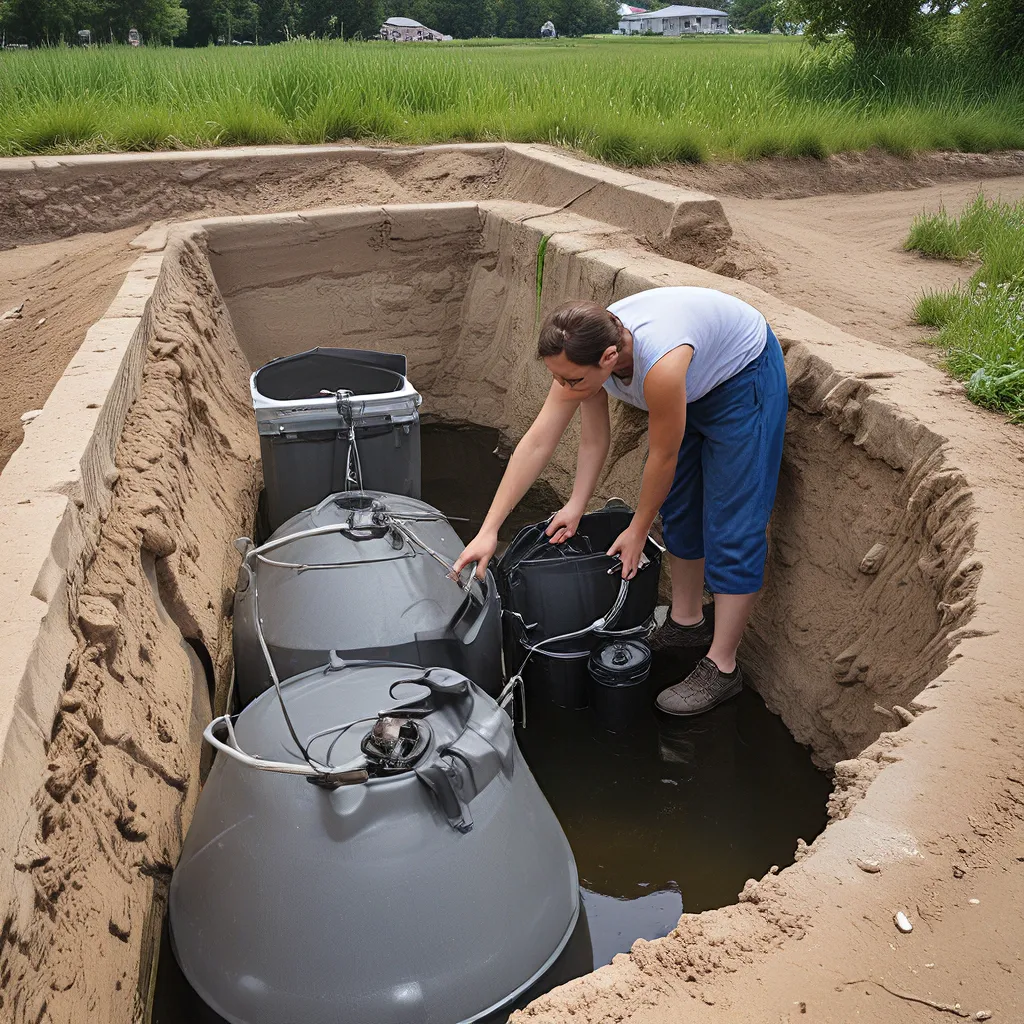
As an engineer passionate about sustainable solutions, I’ve always been fascinated by the vital role wastewater treatment plays in our communities. It’s not just about managing sewage and runoff – it’s about safeguarding our precious water resources, protecting public health, and fostering a more responsible relationship between people and the environment.
The Unsung Heroes of Wastewater Treatment
When you think about the infrastructure that keeps our modern world running, wastewater treatment plants are often overlooked. But these silent workhorses are the unsung heroes of our communities, quietly and efficiently processing billions of gallons of used water every day. From the moment we flush our toilets to the moment that water is safely returned to the environment, these facilities are hard at work, employing advanced technologies to remove contaminants, recycle precious resources, and ensure the health and sustainability of our water systems.
Wastewater Treatment: More than Just Flushing
Wastewater treatment is a complex and multifaceted process that goes far beyond the simple act of flushing and forgetting. It involves a carefully orchestrated sequence of physical, chemical, and biological treatments designed to transform used water into a safe, reusable resource. This process not only removes harmful pollutants but also recovers valuable materials like nutrients, energy, and water that can be repurposed for a variety of beneficial uses.
One of the most remarkable aspects of modern wastewater treatment is its ability to turn waste into a valuable commodity. For example, the nutrient-rich sludge leftover from the treatment process can be used as a fertilizer to enrich agricultural soils, closing the loop on our resource cycles. Additionally, the methane gas produced during the treatment process can be captured and used to generate renewable energy, powering the very facilities that create it.
The Environmental Impact of Wastewater Treatment
The environmental benefits of effective wastewater treatment cannot be overstated. By removing harmful substances like heavy metals, pesticides, and pharmaceutical residues, these facilities play a crucial role in safeguarding our aquatic ecosystems and the health of the wildlife that depend on them. This, in turn, helps to preserve the delicate balance of our natural world, ensuring that our waterways remain clean, vibrant, and capable of supporting diverse and thriving biodiversity.
But the environmental impact of wastewater treatment goes beyond just the immediate benefits of pollution removal. By reclaiming and repurposing water, wastewater treatment plants help to conserve our limited freshwater resources, reducing the strain on our water supplies and ensuring that this precious commodity is available for generations to come.
Wastewater Treatment and Community Engagement
Historically, wastewater treatment has often been an overlooked and underappreciated aspect of municipal infrastructure. However, as the world becomes increasingly aware of the importance of sustainability and environmental stewardship, there is a growing need to engage the community in the vital work of these facilities.
According to FEMA’s “Whole Community” approach, effective community engagement involves building strong partnerships between local governments, businesses, and community organizations. By fostering these connections, wastewater treatment facilities can not only educate the public about their important work but also empower citizens to become active participants in the stewardship of our water resources.
One way to achieve this is through educational outreach programs that invite community members to tour the facilities, learn about the treatment process, and understand the critical role it plays in maintaining a healthy and sustainable environment. By demystifying the often-complex world of wastewater management, these programs can help to build trust and foster a sense of shared responsibility among residents.
Promoting Social Responsibility through Wastewater Treatment
But the benefits of community engagement in wastewater treatment go beyond just education and awareness. By involving local stakeholders in the decision-making process, these facilities can also help to promote social responsibility and environmental justice within the community.
For example, partnerships with non-profit organizations can help to ensure that the burdens and benefits of wastewater treatment are equitably distributed, prioritizing the needs of underserved populations and addressing any potential environmental injustices. This might involve investing in infrastructure improvements in low-income neighborhoods, implementing innovative water reuse programs to provide affordable access to clean water, or supporting community-based sustainability initiatives that empower residents to become stewards of their local environment.
The Future of Wastewater Treatment: Sustainability and Innovation
As we look to the future, the role of wastewater treatment in promoting social responsibility and environmental sustainability is only going to become more crucial. With climate change, population growth, and increasing water scarcity putting ever-greater demands on our water resources, the innovative approaches and sustainable practices employed by these facilities will be essential in maintaining the health and resilience of our communities.
Municipalities like Denton, Texas are already leading the way with comprehensive sustainability frameworks that integrate wastewater management, water conservation, and community engagement into a holistic vision for a more sustainable future. By embracing renewable energy, water recycling, and nature-based solutions, these forward-thinking initiatives are demonstrating that wastewater treatment can be a powerful driver of positive change, both for the environment and for the communities it serves.
As an engineer, I’m excited to see how the continued advancement of wastewater treatment technologies and collaborative community programs will shape the future of this critical infrastructure. By working together to promote social responsibility and environmental stewardship, we can ensure that the vital work of these unsung heroes continues to benefit our communities for generations to come.
Remember, when it comes to wastewater treatment, there’s always more than just meets the eye. So, the next time you flush, take a moment to appreciate the incredible journey your water is about to embark on – and the dedicated professionals who are working tirelessly to make sure it returns to the environment clean, safe, and ready to be used again.
Alpha Wastewater is proud to be at the forefront of this essential industry, delivering innovative solutions and fostering strong community partnerships. Let’s work together to build a more sustainable and responsible future for our water resources.